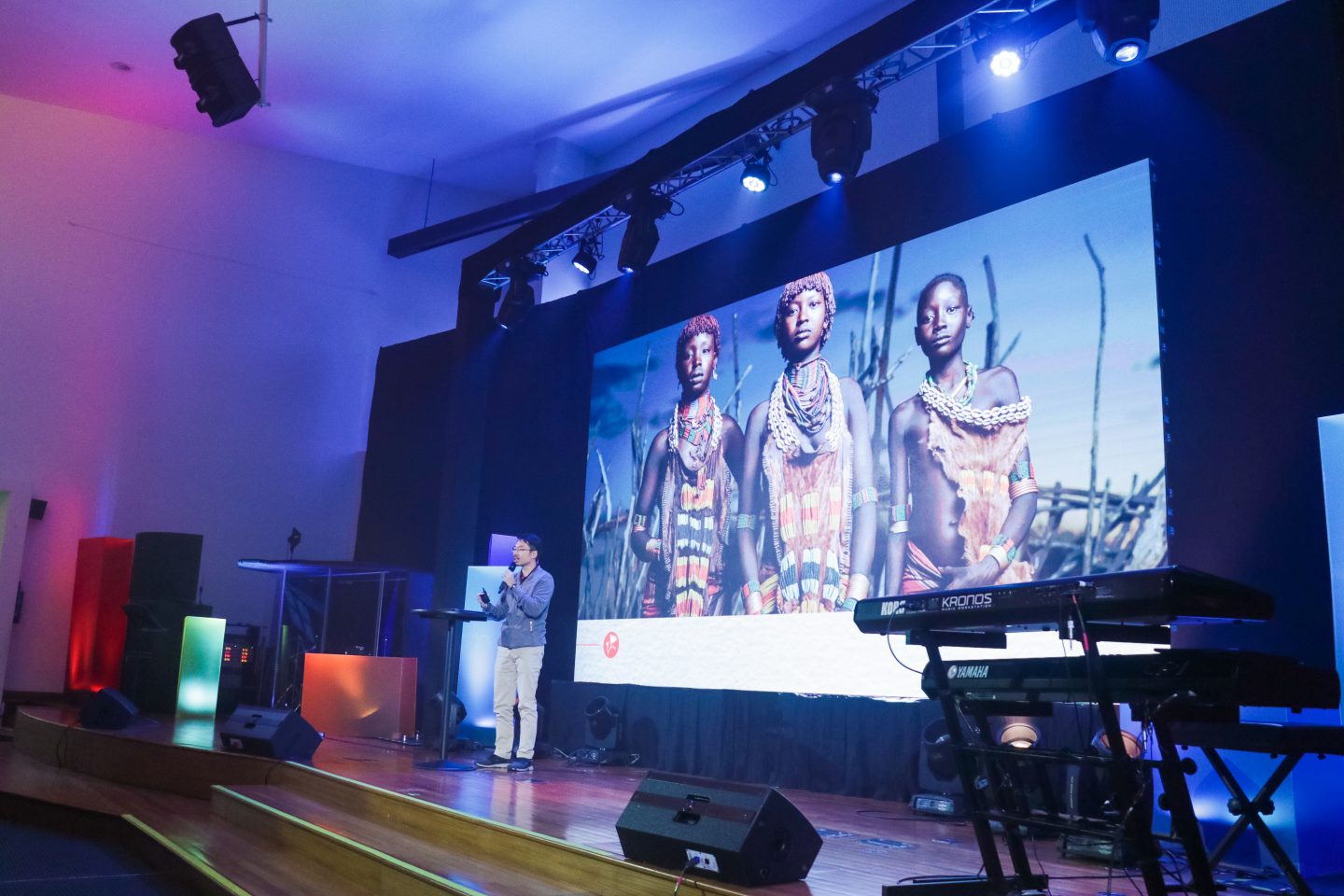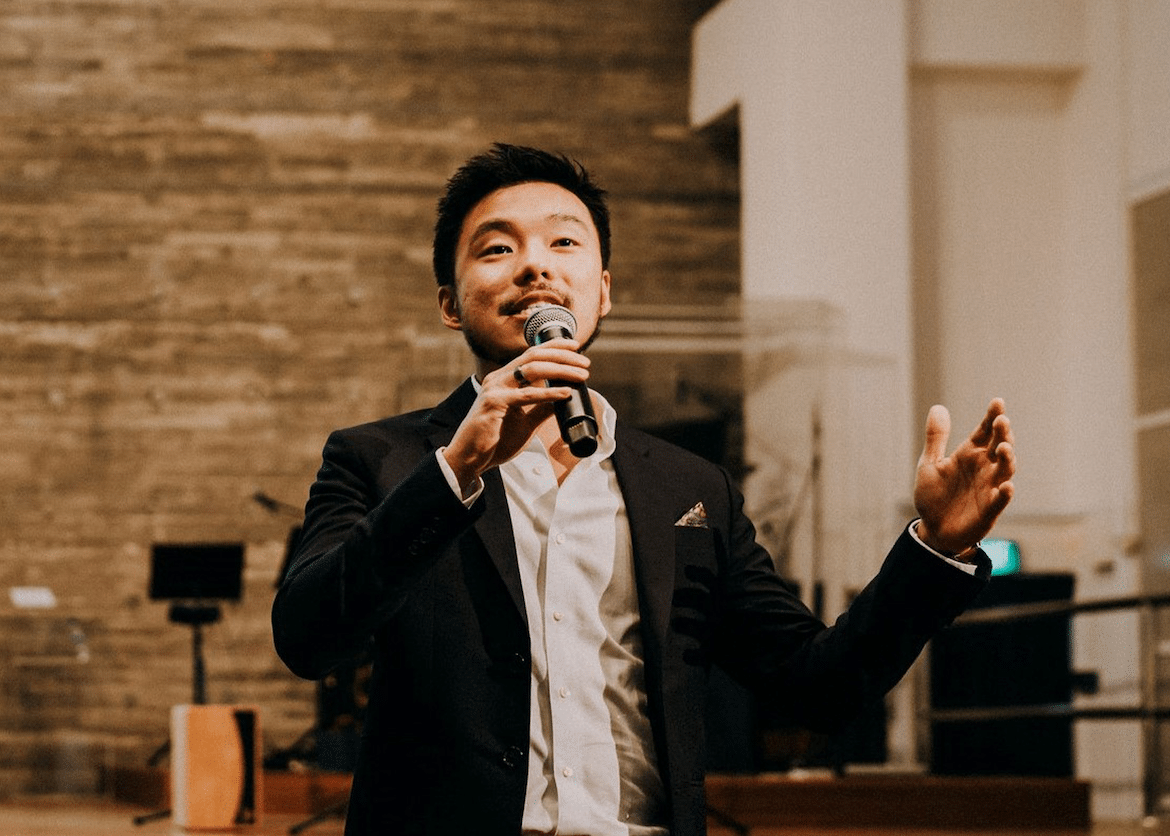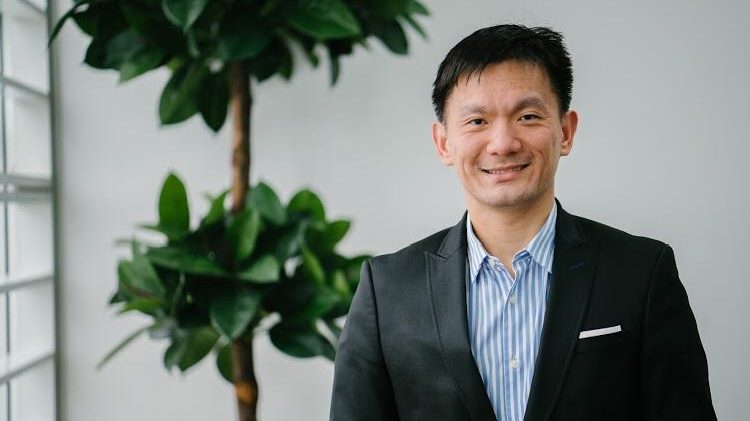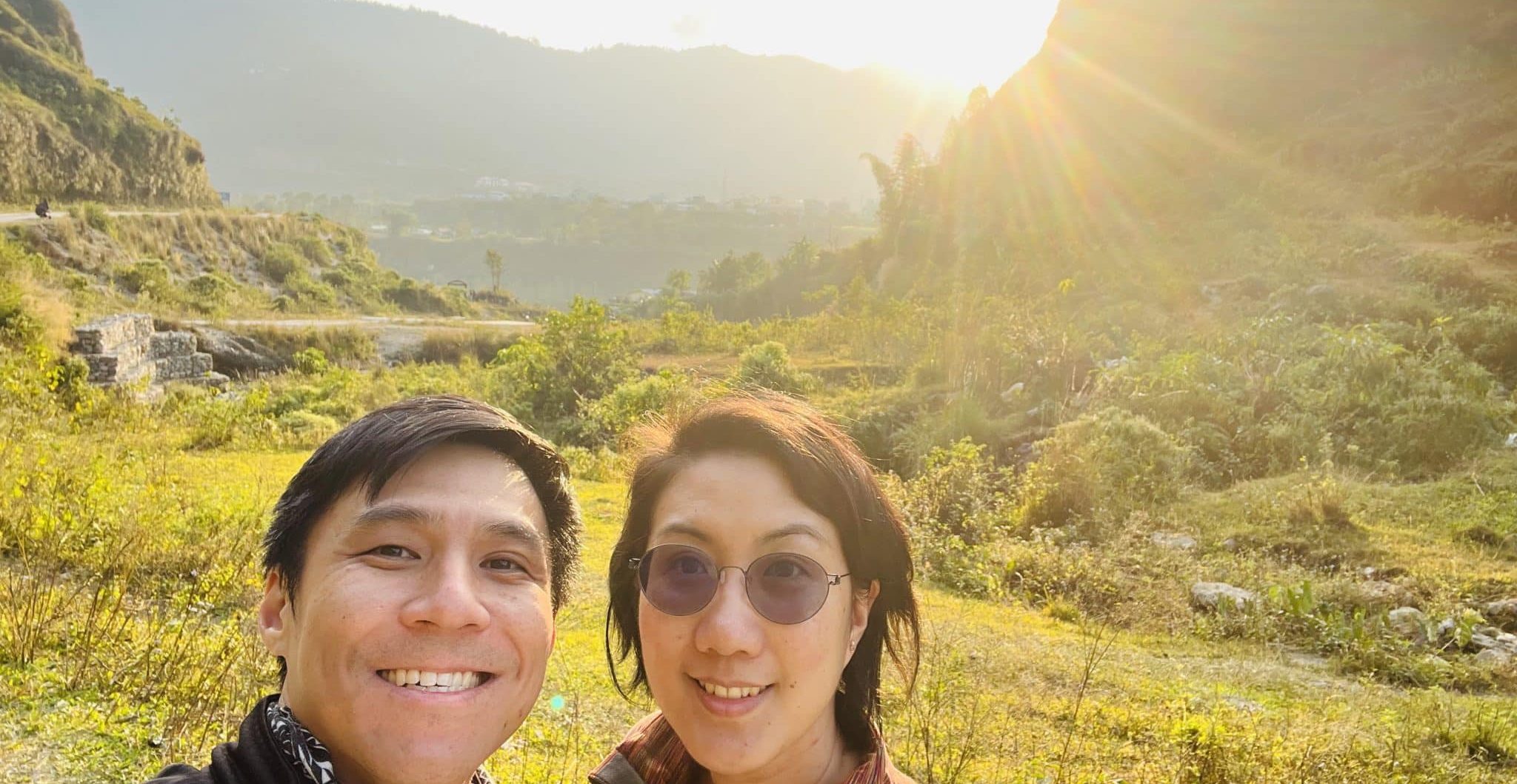The Justice Conference Asia 2019: What are people going to “taste” – you or the flavour of God?
by Rachel Phua // October 19, 2019, 11:03 pm

Lawyer Ronald Wong speaking to the delegates during his keynote speech titled What's Justice Got to Do with Life, the Universe and Everything? All photos courtesy of The Justice Conference Asia.
The Church exists to bring hope to a broken world and lead its people one step closer to God.
And this should be our idea of justice.
Speaking on the second day of The Justice Conference Asia 2019, social justice advocates shared about their roles in bringing restoration to the disadvantaged.
Ronald Wong, a director at law firm Covenant Chambers and the national coordinator of advocacy group Micah Singapore, said that anyone can make a difference – even in the mundane.
God doesn’t distinguish acts of prayer from acts of kindness.
God doesn’t distinguish acts of prayer from acts of kindness, he said. Justice is woven into our ordinary lives “if we choose to live with an extraordinary purpose”. He referred to the purpose as the mission of God.
Referencing Ephesians 1:9-10 and Colossians 1:19-20, Wong explained that God’s mission is to unite “all things under the kingship of Christ”, which includes the marginalised.
“Social justice is about the inclusion of every person into community,” he said.
Because of sin, each person is broken and separated from God, and therefore one another. People are either emotionally distant or they treat each other unfairly.
But the Gospel reveals that God is uniting all things and people in Jesus. Believers are being transformed more into Christlikeness each day and tasked with embodying the Gospel to people around us – just as Jesus did when he walked the earth.
“Social justice is about the inclusion of every person into community.”
“So when we talk about evangelism, we are talking about pursuing God’s mission. It’s not only about telling the Gospel, but it’s also about living out the Gospel,” he said. “The Bible says taste and see that the Lord is good. What are the people around you going to taste? You, or the flavour of God that is in you?”
Pursuing social justice does not need to be a complicated task, he added. Just through a simple act of kindness, we draw people one step closer to God.
He quoted from American Anglican priest Tish Harrison Warren who wrote: “The crucible of our formation is in the monotony of our daily routines…. We love people universally by loving the people we know and can name. We love the world by loving a particular place in it, a specific creek or hill or city or block.”
How social justice looks like
Tamar Village head Mercy Ho described how the organisation, which reaches out to workers in Singapore’s red light district, is seeking social justice by providing a space for beneficiaries to work and rest at their centre, while offering further forms of social and financial assistance.
Ho said that the main purpose of the ministry is not to “fix them”, but to give them room to heal and “dream again”.

Ho speaks to moderator Deborah Ng about how Tamar Village rehabilitates red light district street workers.
“Our work is to love,” Ho said. A team of 10 to 12 volunteers walks with one beneficiary, with the hopes that the “sister” or “brother” – that’s how the team recognises the beneficiaries – sees Jesus in these volunteers.
While the local church has done much to support Tamar Village, she hopes more Christians will be willing to open up their homes to house some of the beneficiaries, and for cell groups to welcome them as their own.
“Our work is to love.”
Another organisation uses Luke 10:5-9 when coming up with a solution to provide clean drinking water to disaster-hit and rural communities.
In the same way Jesus commanded the disciples to bless the households they visited (Luke 10:5-6), the team would pray before entering a community, said the co-founder. They would then stay and fellowship with them to build relationships and understand the situation in each community (Luke 10:7).
In the Bible, when a town received the disciples, they were to heal the sick and declare that the kingdom of God was near (Luke 10:9). The company, in a sense, was providing a device that would dispense both physical and spiritual healing. Then, through their work with each community, they made sure that kingdom values were imparted and lives immersed in the transformation.
With God, all things are possible
While many people might be skeptical about whether they can make a difference, Cassandra Lee, the co-founder of Justice Rising, asserted that God is longing to move and He will powerfully use those who are willing.
“Impossibilities are just targets for miracles.”
“It’s a beautiful thing when we learn to see the way Jesus sees. When we can look at a problem and say ‘oh, this isn’t the end of the story’,” said the missionary, whose work focuses on developing schools in war-torn regions. “Because Jesus, when he looks at a place, doesn’t see an impossibility (Matthew 19:26).”
Lee referenced Isaiah 54:1-4, pointing out that God restores barren places and will even multiply what He restores.
“Impossibilities are just targets for miracles.”
How “just” is your Facebook or IG post: Melissa Kwee challenges Justice Conference Asia delegates
We are an independent, non-profit organisation that relies on the generosity of our readers, such as yourself, to continue serving the kingdom. Every dollar donated goes directly back into our editorial coverage.
Would you consider partnering with us in our kingdom work by supporting us financially, either as a one-off donation, or a recurring pledge?
Support Salt&Light


